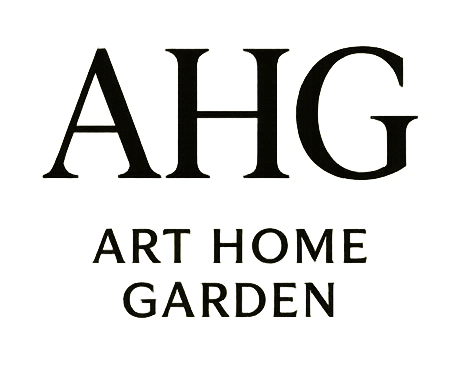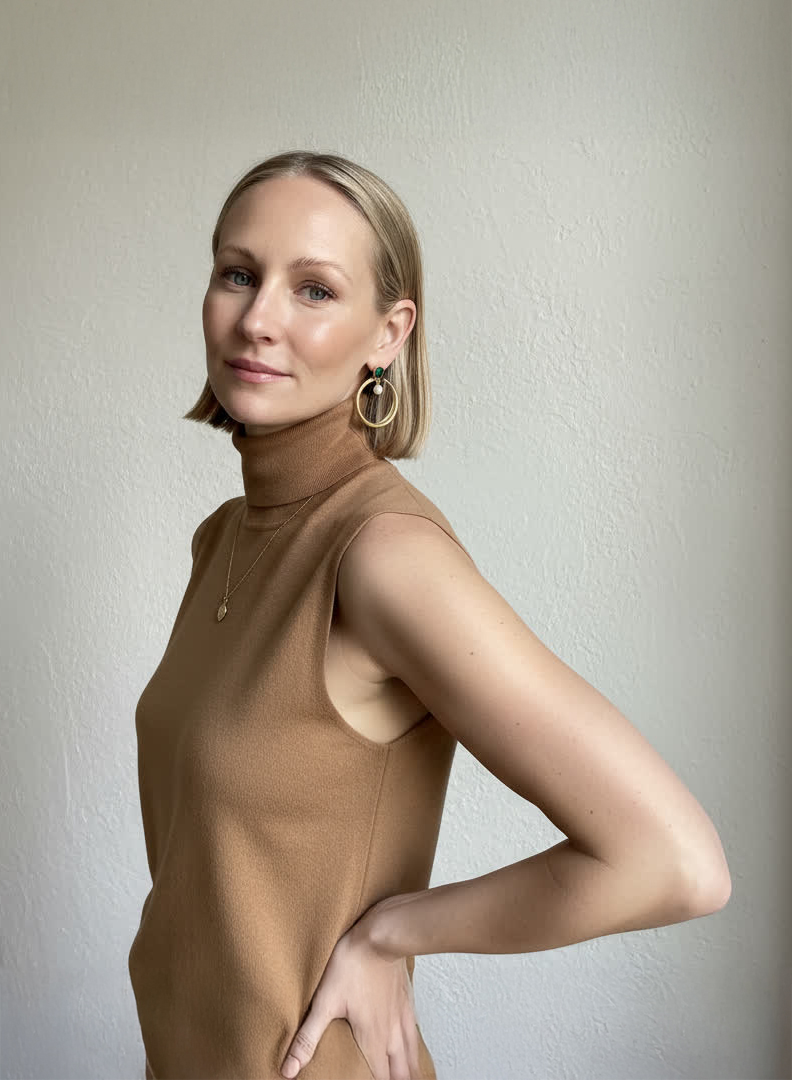If you’re embarking on a kitchen remodel, one of the key decisions you’ll make is what type of kitchen counters to install.
You’ll want something designed to last, easy to clean, and stylish. It’ll be one of the main design elements of your kitchen and used every day. But how do you know what type of counters will work best?
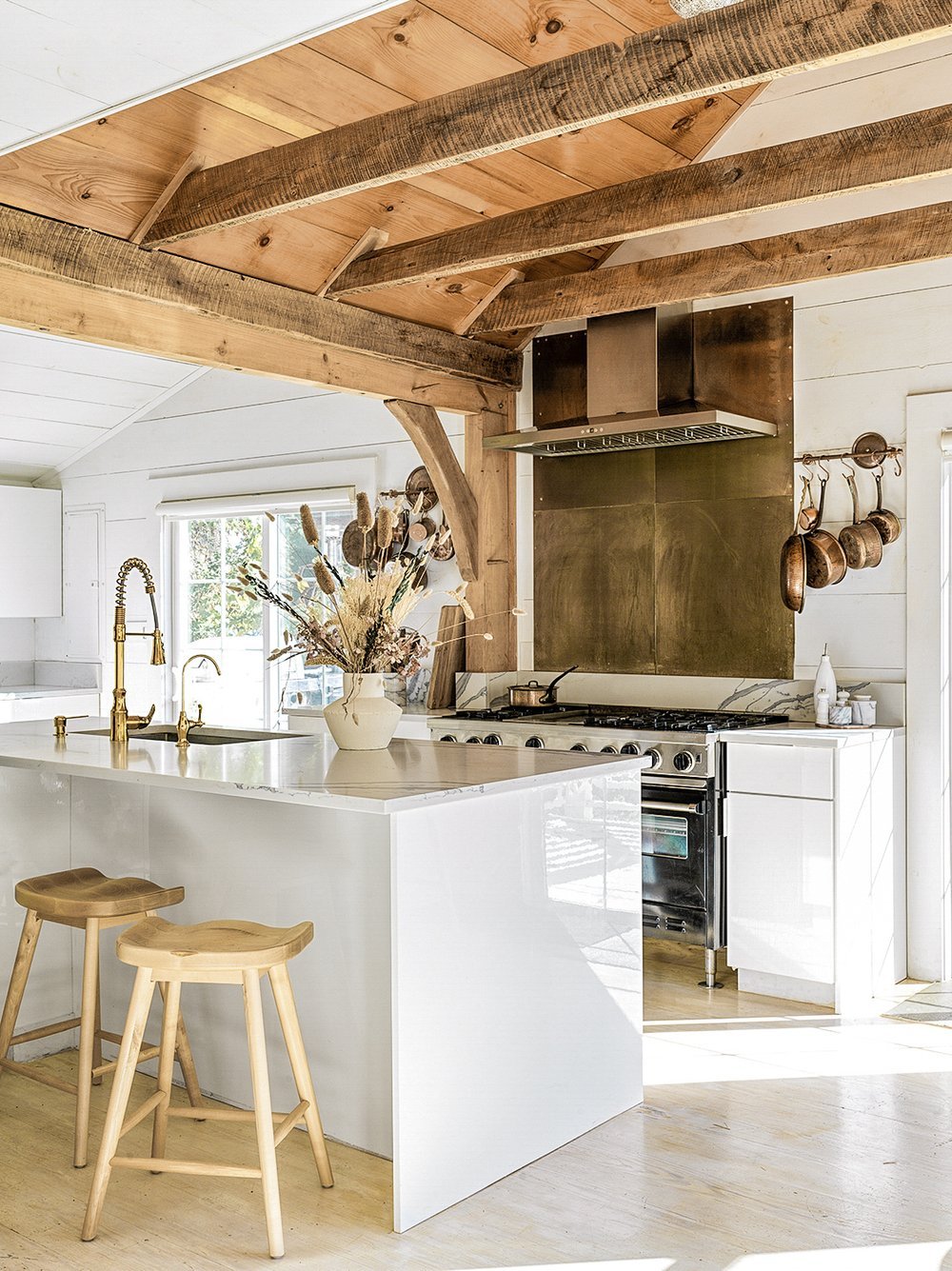
At AHG we’ve got you covered. Keep reading to learn about different kitchen counter types available so you can figure out what will work best for you.
How Do You Choose a Kitchen Countertop?
When you’re selecting a kitchen countertop, you’ll first want to consider your needs, priorities, and goals. To figure this out, ask yourself questions like:
- What kitchen style do you like?
- How often do you use your kitchen?
- How many family members use the kitchen?
- How much cooking and prep do you do?
- What colors and aesthetics will work with your existing kitchen design? (unless you’re remodeling the whole kitchen)
- What’s your budget?
- What countertop qualities are important?

Once you have these basic questions answered, you’ll then be in a better position to know what types of materials will fit your lifestyle. For more details about each counter type check out our guide below.
Kitchen Counter Materials Guide
Marble
Marble is a stunning and classic material that works for a wide range of aesthetics from traditional to modern. It also comes in a huge variety of color options, making it extremely versatile. As it’s a natural stone no two slabs are alike and is popular for a luxury kitchen aesthetic. It does come with a high price tag, marble on average can range from $75-200 per square foot. It is long-lasting when properly maintained, but it’s not the most durable material and will require regular sealing for protection.

Pros
- Adds to the value of your home
- A wide array of colors and styles available
- Luxury and unique material
- Waterproof and heatproof
Cons
- Expensive premium material
- Not heat resistant
- Scratches and stains easily unless properly sealed
- Requires maintenance and resealing
Granite
You may associate granite with the dated busy looking kitchens of the 80s and 90s, but granite also comes in beautiful modern options in a range of colors and patterns. There is a reason why it’s been a popular choice for so long. Like marble, granite is a natural quarried stone, so that means you can achieve a unique look. If you prefer a modern aesthetic, we recommend avoiding multicolored granites and going for more streamlined options instead. It’s also more durable and affordable than marble, usually costing $50-120 per square foot.
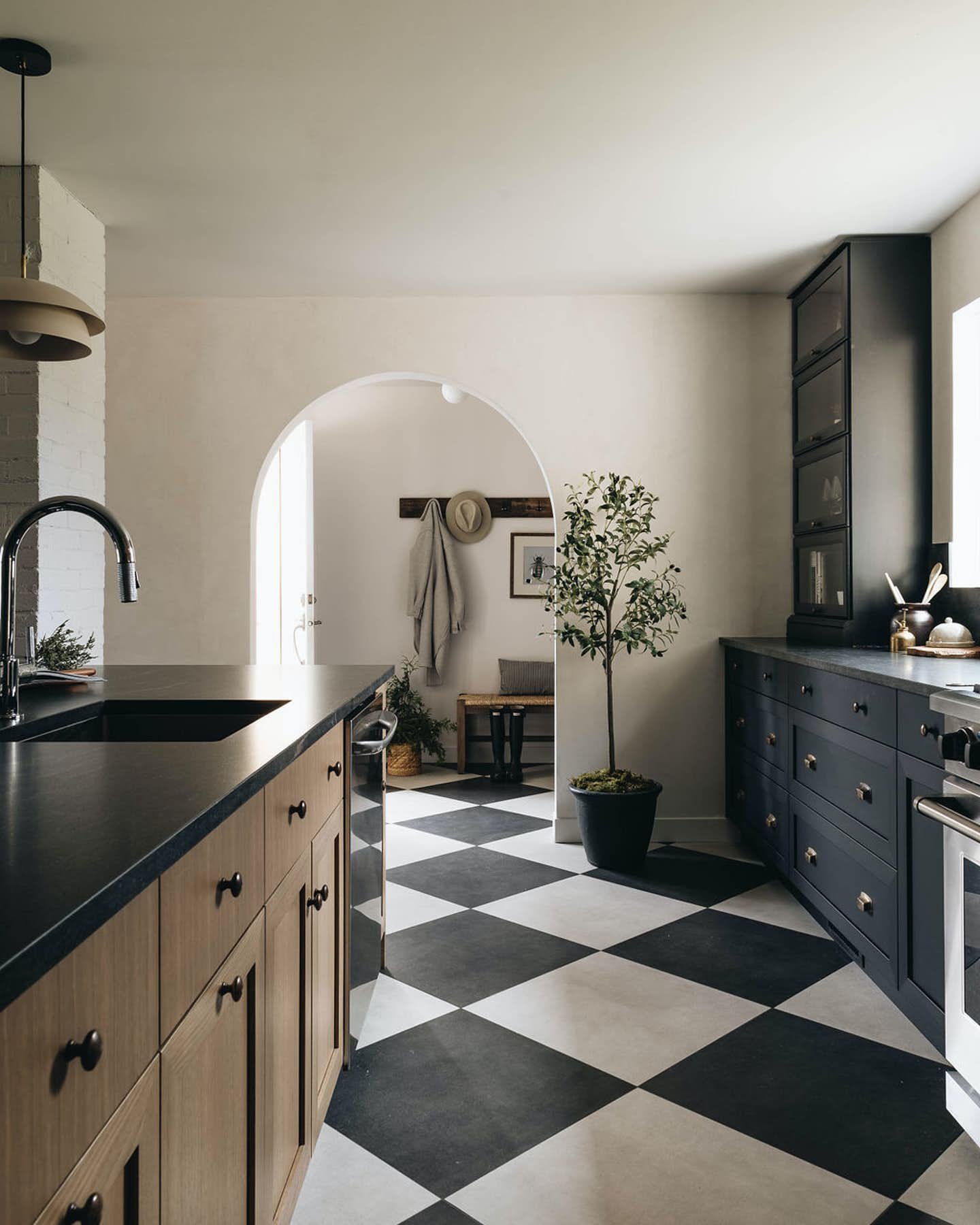
Pros
- Extremely durable – heat, scratch, and stain resistant when properly sealed
- Beautiful natural material
- Adds to the value of your home
Cons
- Needs to be resealed over time
- Edges and corners can chip
- If you don’t choose carefully you could have a dated look
Soapstone
Another beautiful natural stone, soapstone is a popular kitchen counter option. It usually comes in a range of grays from dark charcoal to medium and light grays and can have green or blue tones. It also can be found in more solid varieties or options with more veining. As it’s a nonporous stone it doesn’t need to be sealed for protection. It will often darken and develop a patina over time which is great if you like an antique aesthetic. It typically costs $75-150 per square foot to install.
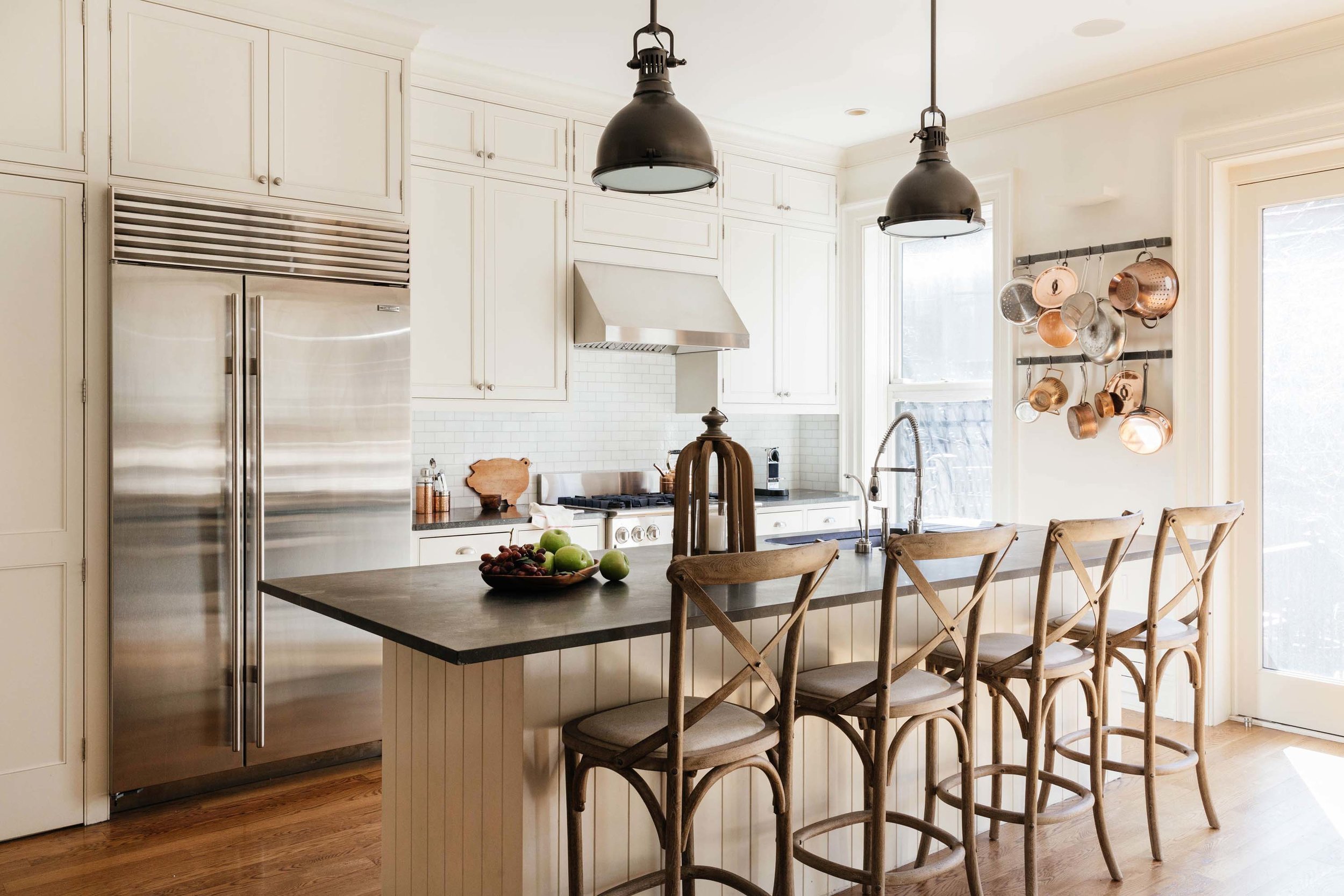
Pros
- Durable – heat and stain resistant
- Easy to clean
- Beautiful natural material
- Adds to the value of your home
- Doesn’t need sealing
Cons
- Can scratch easily
- Needs mineral oil treatment periodically
- More limited color options than other materials
- It may age and darken, which doesn’t suit everyone
Quartzite
Quartzite is a beautiful natural stone that comes in a wide variety of colors and resembles the look of marble. It’s also much harder and more durable than marble and not quite as expensive at $75-150 per square foot. This makes quartzite a very popular option and has become a new favorite among interior designers.
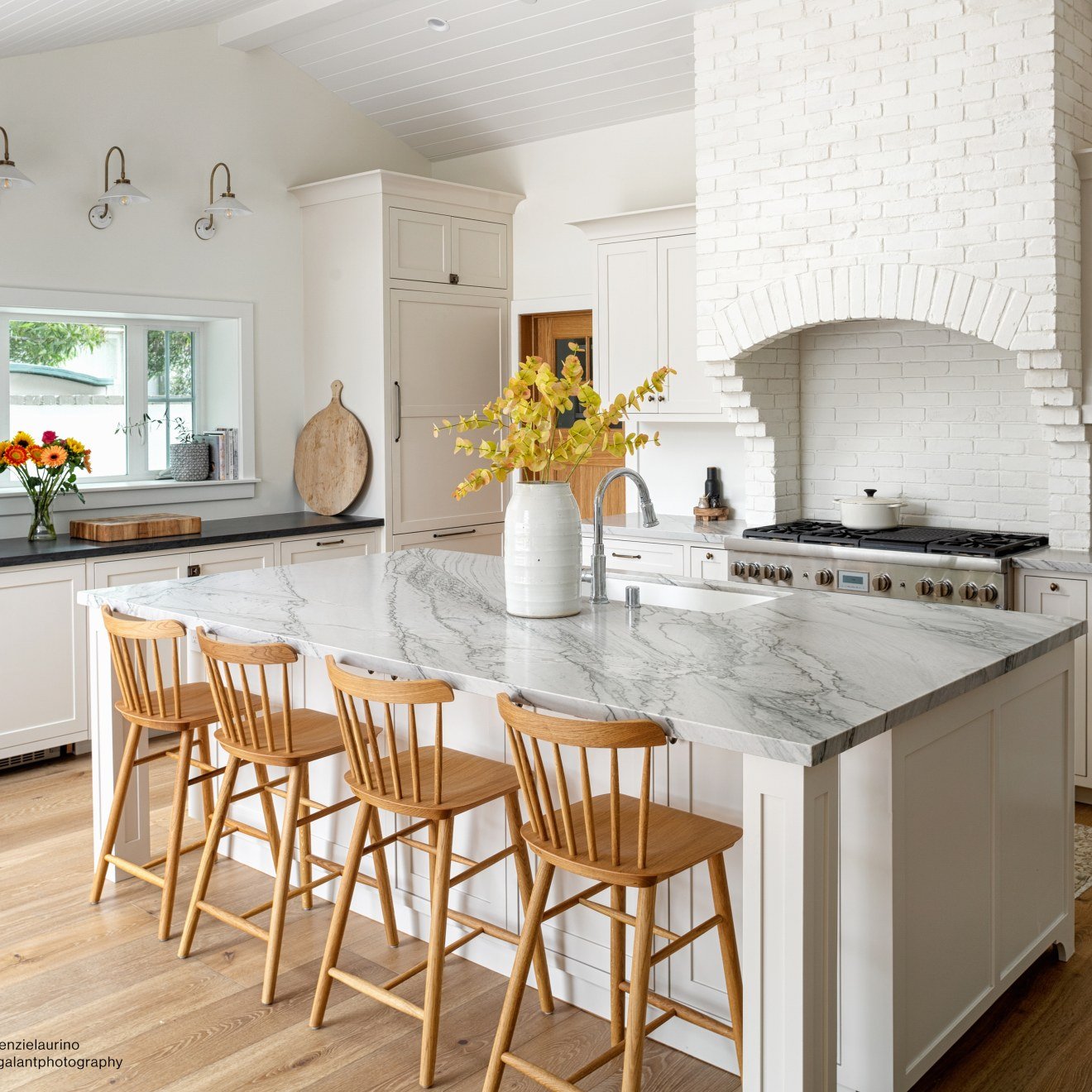
Pros
- Durable – heat, stain, water, and UV resistant
- Easy to clean when sealed
- Beautiful natural material
- Adds to the value of your home
- Looks like marble and is versatile
Cons
- Premium material, the cost reflects that
- Porous and needs sealing
- Not resistant to scratches
Quartz
Not to be confused with Quartzite, Quartz is a manufactured stone material, made from ground-up natural quartz and resin and then formed into slabs. Quartz, also known as engineered stone, is extremely durable and low maintenance and comes in an endless array of colors. There are even quartz options that mimic the appearance of marble, but cannot match the look of natural stone exactly. If durability is a top concern then this is one of the most durable options around. It’s more affordable and usually ranges from $45-150 per square foot.

Pros
- Extremely durable – heat, scratch, and stain resistant
- Doesn’t need sealing or regular maintenance
- Will not crack or chip
- Very versatile – huge range of colors and patterns available
Cons
- Not a natural stone
- Can be damaged by very high or prolonged heat
- Seams joining slabs can be noticeable
Stainless Steel
For a modern and industrial-inspired kitchen stainless steel is a good option. It’s durable and easy to clean, but can be susceptible to dents, scratches, and fingerprints. If you have a smaller kitchen this might be one you want to consider because its reflective surface can help make the space feel brighter and larger. A more affordable option, it’s typically $60-100 per square foot to install.

Pros
- Durable and easy to clean – heat, stain, water, and bacteria resistant
- Good for small spaces
- Adds to the resale value of your home
Cons
- Can dent and scratch
- Fingerprints show easily
- Limited in terms of style
- Can be noisy
Concrete
Great for modern, contemporary farmhouse, or industrial aesthetics concrete creates a sleek and minimal look. You may think of concrete counters as only available in slate gray, but there are a surprising range of styles and color options to choose from. By adding a stain or pigment to the concrete you can change the look. It’s easy to customize and can be poured to fit virtually any space. One downside is they’re much heavier than other materials so your cabinets or floors may need to be reinforced to support them. They’re around $50-100 per square foot to install.

Pros
- Very customizable
- Durable – heat and scratch resistant
- Unique and stylish aesthetic
- Add value to your home
Cons
- Not stain resistant and will need resealing periodically
- Can develop cracks, but are repairable
- Very heavy
Butcher Block
Wood counters are very classic and can add warmth to a kitchen. They’re perfect for a range of styles including traditional, farmhouse, cottage, and modern. However wood is higher maintenance than other counter materials. The cost range is usually $50-100 per square foot.

Pros
- Range of styles and finishes available
- Can be sanded and resealed
Cons
- Can be scratched, stained, dented, and burned
- Bacteria can be an issue when not properly cleaned
- Must be oiled and sealed to be cared for
- Not resistant to heat.
